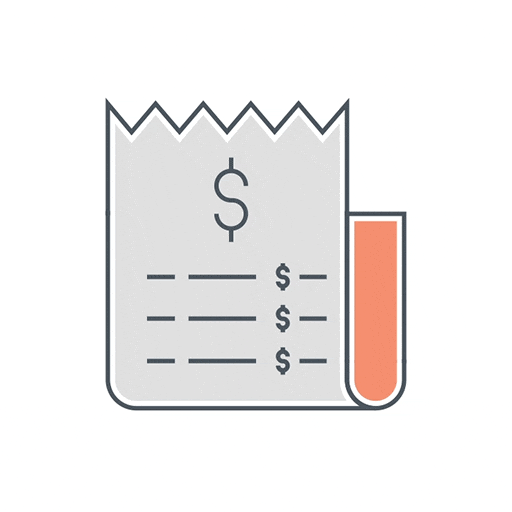Starting a Construction Business? You Need a Fractional CFO For Startups

Last summer, our neighbor decided to build a shed in his backyard. He looked motivated at the beginning and thought he could kill this with the right set of tools.
However, after three days of hammering, the shed was lopsided, and let’s not mention what Dave had to say. He talked with us, and we asked a simple question, “Dave, let us see your plan.” Dave looked at us like we were asking for lunar meteors. He didn’t have a plan.
Running or starting a construction business isn’t different if you don’t have a financial strategy. The business can go sideways pretty fast. So, what can you do about it?
One thing you could do is hire a fractional CFO for startups, and this is our topic of discussion today. So, let’s find out how and why a fractional CFO can be helpful for any construction startup.

Who is a Fractional CFO Anyway?
A fractional CFO is a financial strategist who brings expertise to your business when you need it. They are different from a full-time CFO, who does the same thing but comes with a full-time cost.
Fractional CFOs uncover the story of your business operations. They created plans and forecasts that help in cash flow management (more on that in a while).
For instance, let’s say you’re bidding on a massive construction project but unsure if your business can handle it. A fractional CFO can analyze your current cash flow and create a plan to show if bidding on the project is right. If it’s the right bid, they can guide you in cost-cutting or funding so you can bid without cash flow issues.
However, it’s not just about managing numbers. A fractional CFO can help you expand, raise funds, or explore mergers and acquisitions. In addition, a fractional CFO aligns their approach to your company’s unique needs, making them a perfect fit for startups.
What are the Common Challenges of Starting a Construction Business?
Did you know that 20% of small businesses fail within the first year? We know starting a business, especially a construction business, can be difficult. However, what many businesses don’t know about the common challenges in the construction industry.
You need to understand these common challenges, as skipping this part can cause difficult-to-repair cracks.
Late Payments
One of the biggest hurdles construction businesses face is the payment cycle. Unlike other industries where you get paid upfront, construction businesses often don’t see full payment until the job is done—and sometimes, it doesn’t happen at all. While clients settle their invoices, you have to pay your team, purchase materials, and cover operational expenses.
Let’s say you’ve secured a big project, but it requires an upfront investment. Without sufficient cash reserves, you can’t cover the costs, and the project can get delayed, which can damage your relationship with the client. The risk multiplies if a client is late with payments or disputes an invoice.
This unpredictability makes it essential for construction startups to maintain liquidity. You need a strategy to manage the ebb and flow of cash so current projects can run smoothly.
If you want to dig deeper into the cash flow problems, you can check out our detailed guide here.

Profitability
Each project has its timeline, budget, and milestones, and you often get paid based on those milestones. This makes it incredibly challenging to determine if a project is profitable.
You can’t understand a project’s profitability by looking at clients’ invoices. You need to track costs as they occur, allocate overhead expenses appropriately, and regularly compare actual spending against your budget.
Changing Costs
Costs are as unpredictable as the weather. Long project timelines, fluctuating material prices, labor shortages, and economic ups and downs can all damage your budget.
In the construction industry, it’s not uncommon to start a project with a solid estimate and watch costs skyrocket halfway through due to unforeseen price hikes or supply chain disruptions.
The cyclical nature of the construction industry only adds to the challenge. When demand is high, labor costs can soar, and project funding can dry up when the economy slows. Balancing these variables while maintaining enough cash reserves to keep your business afloat can be difficult.

High Upfront Costs
The machinery, tools, and equipment needed in the construction don’t come cheap, nor does hiring skilled labor. For new construction businesses, these high upfront costs can feel like a massive hurdle, especially when you have a tighter cash flow or don’t have enough financing options.
For instance, if you have scored a project, the costs can pile up before you even set foot on the construction site, and with payment not arriving until the project reaches key milestones, you can find yourself in a very difficult situation.
Speaking of difficult situations, if you are looking to buy a construction business, you need to ask these 5 questions first.

Why Do You Need a Fractional CFO for Startups?
As we have seen in the section above, the construction industry faces a lot of challenges, and for any startup, these can become a mountain to climb. However, startups can find a growth path with the right guidance from a CFO. Let’s find out what a fractional CFO for startups can do:
Financial Planning
A Fractional CFO provides insights into cash flow reporting, financial reporting, and milestone-based planning to ensure a clear picture of your current and future financial position.
For example, suppose your company is planning to take on multiple projects simultaneously. In that case, a fractional CFO can assess how each will impact your cash reserves and identify potential bottlenecks before they occur.

Final Reporting
When your business needs to secure loans, lenders rely heavily on your financial statements to assess your reliability. If your balance sheet or profit and loss (P&L) statement is incomplete or inaccurate, it can raise red flags and make it much harder to secure funding.
A Fractional CFO ensures your financial reports are accurate and optimized to highlight your business’s financial health. They’ll help you maintain precise records of your assets, liabilities, income, and expenses, creating a clear picture of your company’s financial standing.
Gross Profit Analysis
Gross profit analysis is the process of evaluating a business’s financial performance by comparing the revenue generated to the direct costs.
A Fractional CFO creates systems to correctly assign revenue and costs—like labor, materials, and overhead expenses. Breaking down the numbers helps you identify which projects drive profit and which might drag you down.
For example, if you’re working on two major projects, they make sure that the costs of specialized equipment or subcontractors are accurately tracked and tied to the correct job. This eliminates guesswork and ensures your financial data paints a clear picture of each project’s profitability.

Applying Technology
A Fractional CFO plays a pivotal role in implementing modern accounting technologies and building solid financial systems. As we have seen earlier, delayed client payments can create a ripple effect, leaving you scrambling to pay suppliers or workers.
You can minimize late payments and improve cash flow with efficient collection processes and automated reminders. Similarly, strong accounts payable systems ensure you stay on top of vendor payments, avoid penalties, and maintain good relationships with your suppliers.
Cost-Effectiveness
Fractional CFOs offer expertise at a fraction of the cost, allowing you to benefit from strategic financial leadership without the high price tag.
What makes this approach even more appealing is its flexibility. With Fractional CFO services, you only pay for what you need. For instance, you might require more hands-on assistance with cash flow management and forecasting during a busy period. Conversely, during slower times, you may not need a fractional CFO.
Scalability
Growth is an exciting phase for any construction business, but it also comes with its own set of challenges. Fractional CFOs grow with your business. As your needs evolve, they can expand their scope of services. This flexibility allows you to adapt to changing circumstances without being locked into permanent overhead costs.
Final Thoughts
So, there you have it! Now you know why a fractional CFO for startups is a helpful asset for any construction business. They help you build solid foundations that help businesses in the long run.
If a question pops into your head, “Where can I find a fractional CFO”? Well, the good thing is you don’t need to open another tab. Tangent Consulting has years of experience as a fractional CFO, business coach, and tax consultant. With us, you don’t need to hire an accountant or business coach separately; you can get both in one place.
P.S. If you are reading this, it means you can have access to our free consultation for your business. Avail this for free today before we change our mind 😉
FAQs
What are virtual CFO services?
Virtual CFO services provide remote financial expertise without needing an on-site CFO.
How much does a good fractional CFO cost?
A fractional CFO typically costs between $3,000 and $10,000 per month, depending on business needs.
Can a Fractional CFO scale with my startup as it grows?
Fractional CFOs can scale their services to match your startup’s growth, offering increased support as your financial needs expand.
